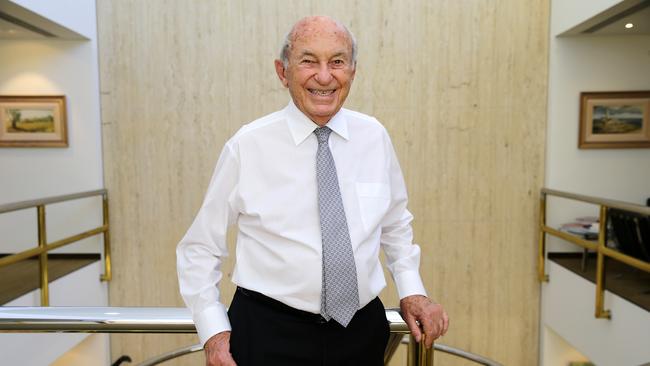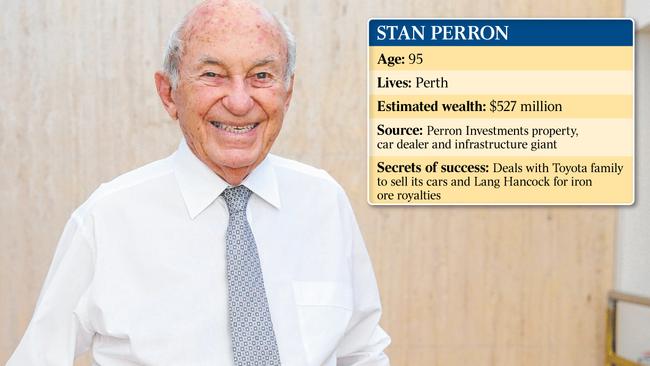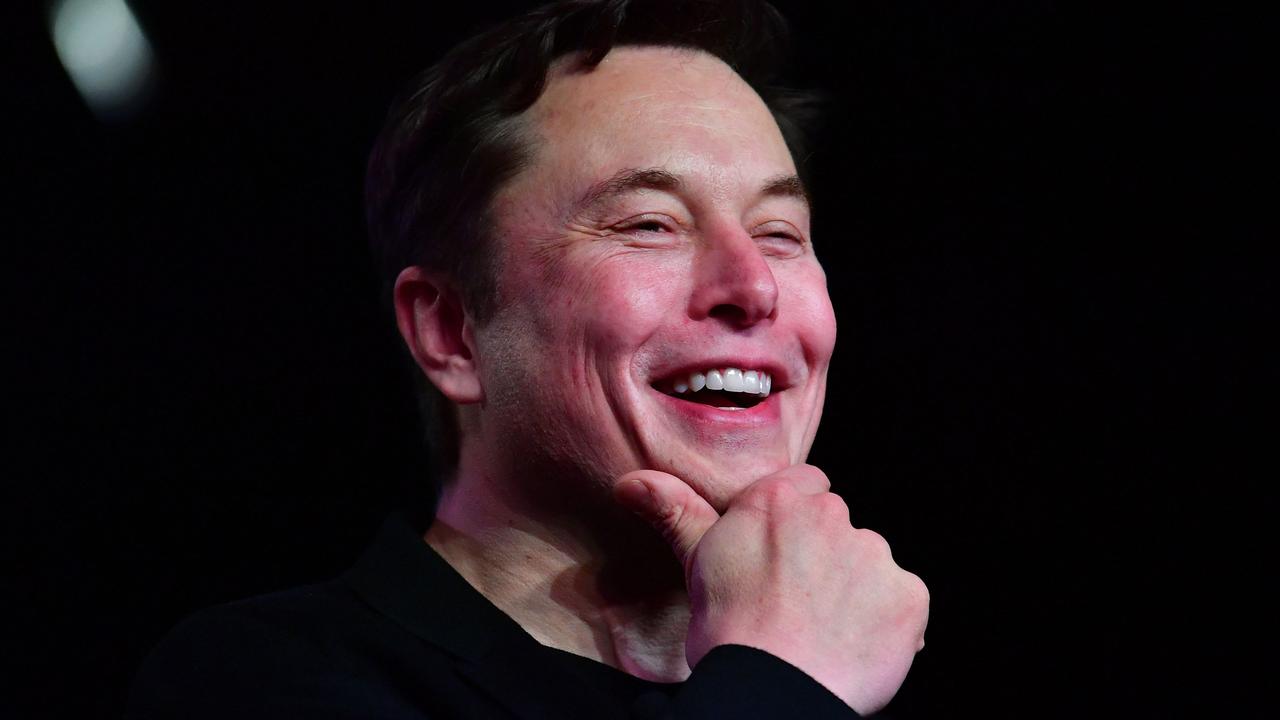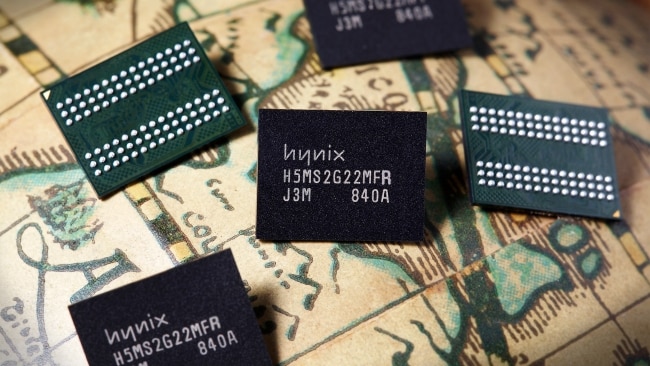At 96, Perron empire keeps building as legend unfolds
Perth billionaire Stan Perron’s business empire is still turning over huge profits.

Stan Perron may be Australia’s oldest billionaire, but he is also still one of the most successful.
The Perth-based Perron turns 96 later this week and oversees a property, infrastructure asset, car dealership and iron ore royalty powerhouse in Perron Investments, which recorded a huge profit according to documents just lodged with the corporate regulator. The 2018 accounts show just how impressive his business empire is, and how far he has come.
Perron has seemingly done it all in business, starting out owning milk bars, a taxi service around Perth that begun in 1944, and then an earthmoving business, before a career-changing move in gaining the right to sell Toyota vehicles back in the 1960s.
He still has that agreement, struck with the Toyota family at a time when many buyers were not interested in Japanese cars, to distribute its vehicles in Western Australia.
Perron Investments made a profit of $299 million from $579m revenue, up from $271m and $556m respectively in 2017. Pre-tax profit was a bumper $414m, from $382m the previous year.
The value of the Perron Investments assets rose about $3.16m last year. The group has about $3.64bn worth of commercial properties and $1.14bn worth of financial assets, including $31m worth of listed shares and $884m in unlisted investments.
The latter would include stakes in infrastructure plays such as Utilities Trust of Australia, which has a portfolio that includes the Perth and Melbourne airports and the Sydney Desalination Plant.

Perron also has airport assets, having bought Auckland International Airport’s 24.6 per cent stake in North Queensland Airports in January for a reported $370m.
The Perth billionaire also holds a reported 3.4 per cent stake in Adelaide Airport, which is majority owned by a host of superannuation and investment funds and is undergoing a $165m expansion of its main terminal.
Then there are Perron’s commercial property holdings, which include office blocks in the Perth CBD and in Sydney, where he owns the 201 Elizabeth Street tower in the city’s CBD.
Perron also owns Westfield shopping centres in Geelong, Woden in Canberra’s south, the Broadway Shopping Centre in Sydney and The Glen and Westfield Airport West in Melbourne. Some are held in joint ventures.
He and the listed Dexus Property Group have plans for a $1bn project at 201 Elizabeth Street, including a large hotel component and 250 apartments.
The luxury units would sit above a 5-star hotel and function centre in the 50-storey tower to replace the existing 38-storey office building.
The project is timed to capitalise on surging demand for Sydney hotel rooms at the top end of the market, and came after earlier plans to sell it did not come to fruition.
Perron and Scentre Group are spending $21m revamping Westfield Woden, including a new dining precinct.
His 2018 accounts also include a breakdown of the tax paid by Perron Investments throughout the year. The group paid $76.57m in income tax, $11.85m in local council rates and $9.72m in land tax.
The accounts also show Perron received $33m in iron ore royalties in the 2018 financial year, the result of yet another canny deal Perron struck decades ago. He was running his earthmoving business in 1959 when approached by the late Lang Hancock, who reportedly asked for £1000 to help his fledgling iron ore partnership with Peter Wright.
Perron refused but invested £500 with the pair, who went on to find iron ore deposits in the Pilbara. Perron asked for a share of royalty from the iron ore that flows via the deal with Rio Tinto struck by Hancock Prospecting and Wright Prospecting in 1964.
Perron’s accounts value the royalties at $350m as an asset on its balance sheet.
Other assets include a bluegum plantation worth about $733,000 — down from $1.3m a year ago — and residential land projects in Western Australia and Queensland. One project reported planned by Perron is the $1bn Pacific View Estate at Worongary on the Gold Coast that would contain up to 3500 dwellings.
Perron is also one of the biggest identities on the Perth philanthropic scene. In 1978 he established the Stan Perron Charitable Foundation, supporting more than 100 organisations, mainly to help sick and disabled children.





To join the conversation, please log in. Don't have an account? Register
Join the conversation, you are commenting as Logout